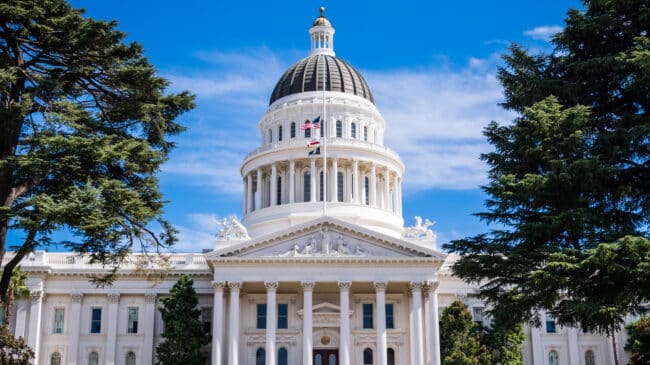The California legislature is considering a bill to decriminalize the personal possession of the safest and most well-researched psychedelics. The sensible solutions in State Sen. Scott Weiner’s much-needed Senate Bill 58 would also task the state’s public health authorities with designing a path for regulated, professionally supervised psychedelic therapy so that Californians could benefit from using them for mental health therapy and not be treated as criminals.
The resurgence of global research into the therapeutic potential of psychedelics could transform mental health care. Psilocybin, the active ingredient in ‘magic mushrooms,’ has been designated a rare “breakthrough” treatment for depression by the U.S. Food and Drug Administration and may be available nationwide by doctor’s prescription in the next few years.
Though dozens of studies from top-ranked universities have shown psychedelics to be safe and effective, antiquated federal laws from the War on Drugs punish the use of psychedelics similar to the use of heroin. While Congress is debating the nuances of a few drug policy reforms, there is no political path to federal legalization of psychedelics in the near term, which means states like California must lead on the issue.
Critics of State Sen. Weiner’s bill, and similar laws, wrongly and misguidedly claim that legalizing psychedelics will unleash more drug abuse and crime. Psilocybin has been legal in Amsterdam for years. Countless tourists hop off the train and buy psychoactive truffles at the European equivalent of 7-Elevens. An audit of impacts in the Netherlands for the journal Regulatory Toxicology and Pharmacology found that “criminality related to the use, production, and trafficking of magic mushrooms is almost non-existent” there, that “public health and public order effects are very limited,” and “the use of magic mushrooms rarely (if ever) leads to physical or psychological dependence.”
Closer to California, in Nov. 2022, Colorado became the first state to legalize the personal possession of plant-based psychedelics through a ballot measure. Reason Foundation conducted a preliminary investigation of the state’s very early results, finding Colorado’s experience with legal psychedelics so far has been similar to Amsterdam’s. Reason contacted large law-enforcement agencies and hospitals in the state because police and doctors necessarily have close proximity to the impacts of drug abuse. Yet, I couldn’t find any law enforcement agencies or hospital administrators who believed that Psilocybin was a meaningful problem in Colorado, nor any who said incidents had noticeably increased since legalization.
“Psilocybin has not been a significant law enforcement issue in Denver either prior to or following the passage of Proposition 122,” wrote a representative for the Denver Police Department in a statement to me.
For people like Melissa Lavasani, psychedelics have been critical. After she experienced a life-threatening bout of mental illness and pain following her second pregnancy, Lavasani told the Washingtonian, “It just got to a point where it was very clear that if something didn’t change, I was going to take my life.”
Instead, Lavasani read the emerging research and turned to Psilocybin out of desperation. It worked.
But Lavasani, now founder of Washington, D.C.-based advocacy organization Psychedelic Medicine Coalition, and the many Californians seeking to improve their mental health should not have to risk prosecution to use psychedelics.
California policymakers have an opportunity to immediately reduce the penalties for people seeking psychedelics to improve their mental health and to create a pathway for professionally guided legal psychedelics therapy going forward.
Senate Bill 58 is an important, prudent, evidence-based step that can improve public health and the lives of Californians.
A version of this column first appeared in The Orange County Register.
